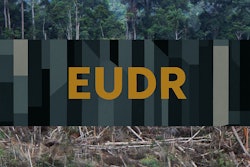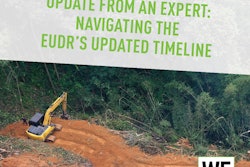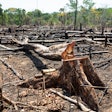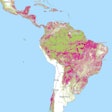So what's new with SHI?
I encourage people to look at some of our reviews of our programs. We're trying to find ways to better evaluate our performance, and our first "graduate report" is available online. I think the wood industry will be particularly pleased with these two notes:
- During the interviews, all of the families interviewed conveyed the positive impact that SHI/FUCOHSO has had on the local environment and reduction of migratory farming (slash-and-burn). It was noted that not only were fewer participants burning (approximately 75% were not), but the community as a whole has for the most part abandoned this technique. The 25% who still burn noted that they do so much less than previously and in a more controlled manner. This data leads us to believe that participants shared knowledge with neighbors and as a result, reduced the level of community-wide slash and burn. Those still practicing slash-and- burn explained that it was being done in a controlled manner, meaning weeds and crop residues were collected and burned versus an entire area.
- In addition to preserved land, the majority of the families interviewed have continued reforestation efforts that were initiated with the support of SHI/FUCOHSO. On average families were planting 462 trees, though it should be noted that three graduates were planting on collective plots. Species being planted most commonly included mahogany, ear pod tree (Guanacaste), mangoes, pink trumpet tree, and others. Over 90% also maintained shade-grown coffee and agroforestry systems in areas measuring ¾ to 8 acres.
Then, last fall and winter, SHI-Belize participants reforested approximately 34 acres with over 9,000 trees. They expanded current cacao and agroforestry plots with a goal of future commercialization and protection of ecosystems.
So you are replanting destroyed forests and reducing slash and burn agriculture. What else? In all our countries and various programs, we now also encourage the use of a wood-conserving stove design originally implemented by SHI-Panama that has both health and environmental benefits.
Traditional stoves, notorious for consuming large amounts of wood, are a main cause of respiratory infections, tuberculosis, eye disease and more. During my visits, I've seen the walls and roofs of rural homes in Central America caked with black soot. Unbelievably, the smoke being inhaled by women and children would be the equivalent of smoking 2 to 5 packs of cigarettes per day. According to the World Health Organization, about 1.6 million deaths around the world were associated with indoor air pollution or the burning of biomass as cooking fuel.
Utilizing up to 50% less wood as a "traditional" open pit fireplace and reducing the amount of smoke and black carbon in the home, the wood-conserving stoves (or Justa stoves) being implemented by SHI are a radical and healthy change. Wood-conserving stoves save thousands of trees, reducing greenhouse gas emissions, and greatly improving women's and children's health in Central America.
Incredible! I had no idea about the personal health implications of the traditional fire pit, just the impact on the forest. Anything else to add? Is it ok if I make a quick plea for more support? Donations can be designated for specific purposes-for example to plant trees or to buy stoves or to educate locals on better forest management.
I would also like to encourage people to join us on the ground. We have upcoming trips to Belize, Honduras and Nicaragua, where people can work on a coffee farm, help build a wood-conserving stove, help with a reforesting project and more. It's a wonderful experience.
































